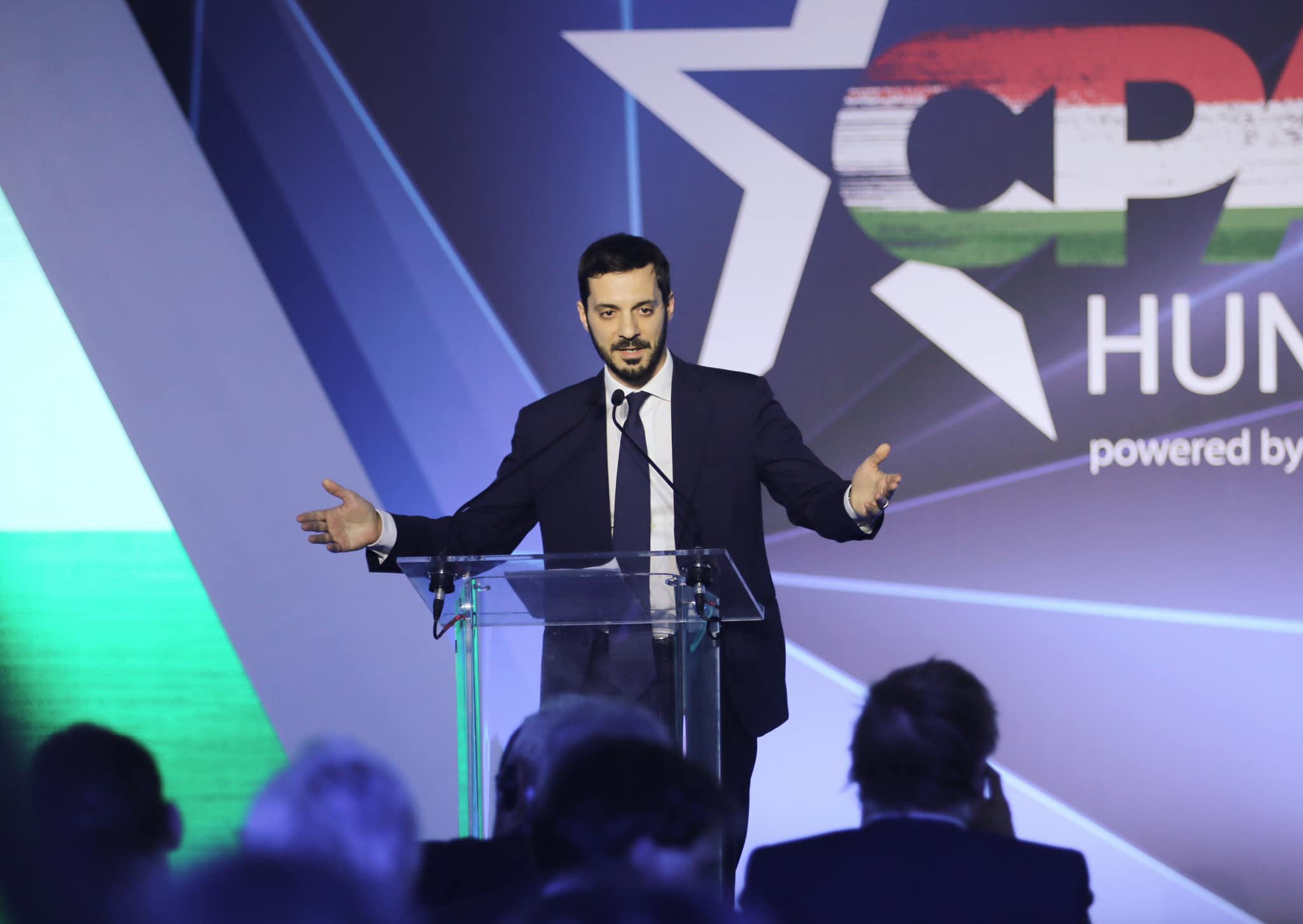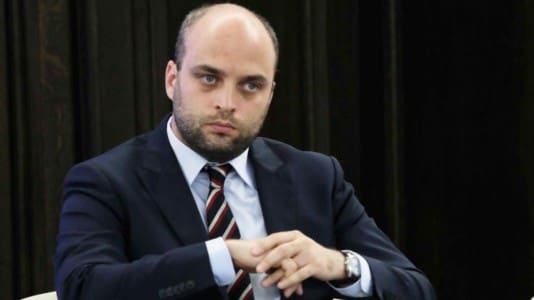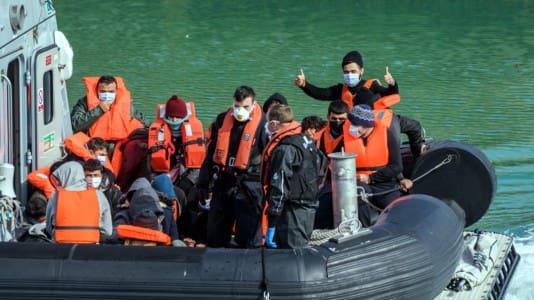French Interior Minister Gérald Darmanin has once again made some rather offensive remarks about Italy and the Italian government. He has said that the “far right” government of Giorgia Meloni has proven its inability to control immigration. What is your reaction as an Italian?
I think he is not well-placed to give lessons to Italy. The official figures for migration management under Emmanuel Macron’s government are themselves catastrophic, with new records hit for the number of residence permits granted to immigrants and a rate of deportation of illegal immigrants that is one of the lowest in Europe, even lower than under the socialist governments of his predecessor François Hollande.
But it doesn’t make sense to make a competition out of it between states, and it’s not smart of Darmanin to say such things.
I understand the motivation behind this attack: The French government is in big trouble internally, it faces demonstrations and strikes every day, and it needs to find an external enemy if only to give the impression that the right is not doing well in other countries. Otherwise, in 2027, the year of the next French presidential election, the camp of the outgoing president will be in trouble.
The French government has already attacked the Italian government two or three times, and it is precisely because we are a case model today. But that’s not the real issue, and Gérald Darmanin should know it very well. I hope that he knows this very well since he is his country’s interior minister. The real issue is that we are dealing with an unprecedented migration crisis. We have huge flows of illegal immigration throughout Europe, on the southern and eastern borders.
[pp id=75500]
This is due to a combination of factors: the destabilization of Tunisia; the crisis in the Sahel, of which France knows something after the failure of its mission there; the war in Ukraine; the climate crisis; the grain crisis; the destabilization that has taken place in the past years in North Africa, and there too France has a big responsibility with regard to Libya.
It is obvious that countries like Italy are the first to suffer from this because we are at the border. It is therefore normal that migrants arrive here first. This is precisely why we have understood that, on the one hand, we must work at the national level to correct the laws that have been put in place by the left in recent years, but that this is not enough, as it is a global crisis, which encompasses the entire Mediterranean. It requires, therefore, a European response.
That is why we are trying to obtain solutions at the EU level. There are some changes, already. If you look at the declarations and also the operational strategies that have been presented by the European Council and the European Commission in recent months, the approach is clearly no longer the same, and you only have to look at the documents and compare them to see that.
[pp id=69616]
This happened after the Ocean Viking crisis, when France once again attacked the Italian government, accusing it of inhumanity. The reaction was that more and more countries sided with us in demanding a concrete and effective change of the Dublin agreements. For the first time, we see the European Commission calling for a strategy of closing borders and putting filters in place outside European borders. Even Germany, which has a center-left government, has agreed to what is a proposal from Italy. So we are seeing changes, but we still have a problem today at the EU level: While the European Commission and the European Council are beginning to understand the need for a new approach, the European Parliament and its left-wing majority, of which Macron’s party, and therefore Macron’s government, is a part, do not want to change the Dublin agreements in the direction we are proposing.
I can tell you this because I am the rapporteur for the ECR group for the dossier on the reform of the migration pact: They took the proposal of the European Commission, which contained some interesting elements, and they did everything to change it and weaken it in the parliamentary committee.
It seems, however, that Matteo Salvini was more effective when he was Italy’s interior minister in 2018-19. Even though Darmanin was not happy, nor was President Macron to whom Salvini’s policy of closed ports reportedly gave nausea. This is what he himself said at the time, causing already another diplomatic incident with Italy.
The facts are that our current interior minister is from the League and he was Salvini’s chief of staff when the latter was interior minister in the first Conte government. So you can understand that the line has not really changed. What has changed is that the measures put in place by Salvini have been partly declared unconstitutional. Once the Constitutional Court has told us that, we cannot repeat the same measures. The laws passed in the first week of May in the Italian parliament follow the same logic as the measures that were taken then, but they try not to fall back into unconstitutionality.
[pp id=67995]
We are in full continuity, but it is the statistics that have changed. Before, in 2019 – I was part of the League and I know it well – there was not the war in Ukraine and the millions of Ukrainian refugees, there was not the destabilization of Tunisia, there was not General Haftar in Libya inaugurating new migratory routes, there was also not Turkey letting boats full of migrants sail as they are today from its shores towards Italy. It was a different world.
The European Commission has been blackmailing Poland and Hungary with European funds for years now, and it is only getting worse. Italy, for its part, is still waiting for the third part of the NextGenerationEU recovery funds. One might therefore wonder whether the moderate migration policy of the Meloni government is not also due to some behind-the-scenes blackmail by the Commission…
It is clear that the recovery plan put in place by the European Union gives the European Commission the power to blackmail, and such blackmail has already been observed in several cases. But this is not the case with immigration, precisely because the European Commission now shares our views on a lot of issues, a lot of subjects on which it defended the opposite stance a year ago. It is simple to understand why: The European Commission also receives indications from the European Council, which is composed of representatives of the countries, and national governments are moving further and further to the right. There is Italy, there is Sweden, there is the Czech Republic, there is Hungary, there is Poland, etc. And so it is normal that the line is changing. We are also waiting for something to happen in France.
Emmanuel Macron’s government should also know that there is, for example, Denmark, where a left-wing government is also implementing a restrictive policy against illegal immigration. In fact, it is only the Italian and French left that seem unable to understand the need to act.
What about the German left?
The German minister of the interior, who is a socialist minister in a government with a center-left majority, has just said that Italy is right and that the new migration pacts should provide for asylum applications to be submitted and processed outside European borders, and that is a radical change.
The current government coalition led by Giorgia Meloni is composed of the Forza Italia, the League, and Fratelli d’Italia parties. As you mentioned earlier, you were still a member of Salvini’s League in 2019. Why did you later leave it and join Meloni’s Brothers of Italy?
I had several motivations, but there are two subjects in particular where I found myself in contradiction with the political line adopted by the League.
The first was the political agenda for the south that the League had set up at a certain point. Some people in the party said that we should return to the Northern League and be the party of industry that is rather in the north. I am from the south, where I was elected. I strongly believe that the south must have a strategic role for the future of Italy, and I did not share this analysis that they then began to implement.
[pp id=76199]
The second thing was that the League joined the Draghi government with the left. For me, it was a red line. The logic of the League was to say that we would enter the government and support Draghi and that this would allow us to influence the political line from within. I said at the time: You will see that it will be the opposite – thanks to the League they will be able to put in place a majority but they will use the deputies and the votes of the League to enforce left-wing policies. That’s exactly what happened and that’s what made Salvini at one point say, “Stop with the Draghi government.”
What is remarkable in Italy is that despite these differences there is a right-wing coalition that has been functioning all this time at the local and regional level and is now governing at the national level. You know France and its politics very well: Do you think that such an alliance of the right could be possible in France too?
I think it can be achieved. I don’t understand why it hasn’t been done yet, and I think it’s something very desirable for France. It is obvious that when you have a coalition you are always in a logic of negotiation, you have to find compromises. But these are compromises with people who, basically, think the same way.
Of course, they don’t think exactly the same about everything because otherwise there would be only one party. There are obviously nuances, but there is a common denominator that we can work on. The logic is: Rather than focusing on the differences, we focus on what brings us together. And then, on the subjects where we disagree, we negotiate, and we sit down at a table to find solutions. This does not prevent that sometimes we argue and then we make up. Sometimes it is one side that manages to impose its line and sometimes it is the other, but it is always within a framework of political projects that prevents the left from imposing its political line because otherwise, we end up being the useful idiots of the progressive system.
Do you think that a common group in the European Parliament from this perspective of an alliance of the right is possible after the next elections that would also include the right wing of the EPP?
You can see the difficulties there are already in building coalitions within countries. Just imagine what can be going on at the European level. A single group would be very complicated to achieve, but it is not necessary anyway. The logic of coalitions allows different parties to have their own groups while agreeing on a common strategy, a coalition strategy to have a majority. That should be the goal, not to bring EPP, ECR, and I&D together in one group. If that happens as well, so much the better, but I am not very optimistic. I am more concerned about the possibility of making the EPP understand that it makes no sense to ally with the left and that we could form a majority on the model, for example, of what is happening in Italy, but also now in other countries
Do you really think a conservative majority is possible in the European Parliament after next year’s elections?
We will see what the results of the European elections will be, but it is certain that conservative forces are on the rise in all countries. The socialist, left-wing forces are experiencing real difficulties, so why not? But in any case, the influence we will have will be much bigger and it will be much harder for them to impose their agenda.





